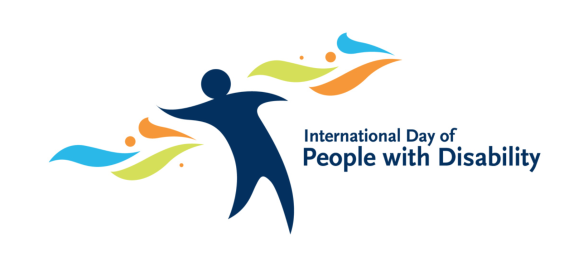 The Dementia Alliance International (DAI) membership joins the rest of the world on Thursday 3rd December 2020 to observe the International Day of Persons with Disabilities under the theme “Toward a disability inclusive, accessible and sustainable post COVID-19 world”.
The Dementia Alliance International (DAI) membership joins the rest of the world on Thursday 3rd December 2020 to observe the International Day of Persons with Disabilities under the theme “Toward a disability inclusive, accessible and sustainable post COVID-19 world”.
The annual observance of the International Day of Persons with Disabilities was proclaimed in 1992 by United Nations General Assembly. It aims to promote the rights, quality of life and well-being of persons with disabilities and to increase awareness of their situation in every aspect of political, social, economic, and cultural life.
Until recently, people with dementia have been left behind, including in those events and discussions about persons with disabilities, as too few understand dementia is a major cause of disability ad dependence in older persons globally. Many age-related health conditions also cause disability, and the global data does not yet reflect these cohorts.
As the world grapples with the effects of the Covid-19 pandemic, many decisions by policy-makers have failed to take into consideration the rights of persons with disabilities enshrined in the UN Convention on the Rights of Persons with Disabilities (CRPD) and the Sustainable Development Goals (SDGS). This is evident in a recent report following a global study which examined the extent to which COVID-19 pandemic has exposed some deep structural inequalities in society.
Data gathered from a study done by for one report “COVID-19, Amplifying Voices: Our Lives, Our Say”, is evidencing that persons with disabilities, older persons, and persons from lower socioeconomic status backgrounds are among those hardest hit by the pandemic.
While this particular report puts a spotlight on the voices of blind and partially sighted persons, many of the experiences shared strongly resonate with numerous other studies conducted by other organizations of persons with disabilities internationally.
In order to ensure that no one is left behind in any aspect, we take this opportunity to call for effective collaboration with representative organizations of persons with disabilities, governments, communities, civil society, UN and other international agencies, and the private sector as we collectively strive to build and sustain a better, more inclusive post-COVID society.
We especially call for governments and health care professionals to accept dementia as a condition causing multiple and progressive disabilities, and to provide disability assessment and support immediately following a diagnosis, including rehabilitation.
